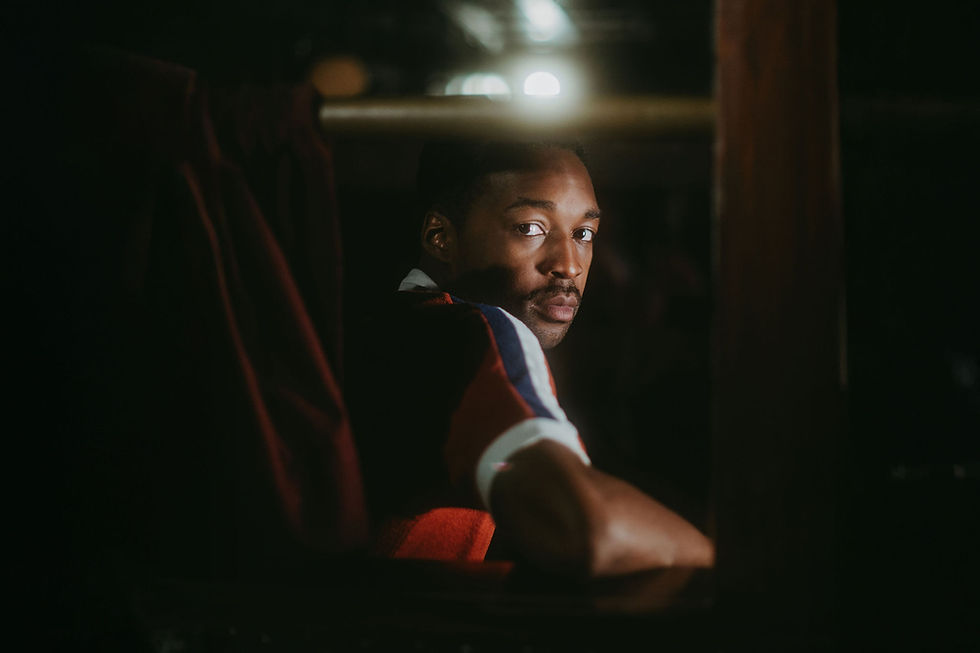LANGAN, FROST & WANE – LANGAN, FROST & WANE: REVIEW
- Aug 19, 2021
- 3 min read

LANGAN, FROST & WANE
Langan Frost & Wane (Goldstar)
Recently I stumbled across an English band from the early ‘70s called Renaissance, after a filmclip came up seemingly randomly in the YouTube algorithm. The track was a 10-minute hit of extravagant multi-part prog rock – grandiloquent guitar lines, piano counterweight lead as well as rhythm, bass and drums offering a swinging feel – mixed with a traditional folk-sounding melody, a female voice you would trust with your secrets, but not necessarily any servant called Matty Grove, and horns and strings that were pitched halfway between you and a concert hall.
It travelled through its sections smoothly, inevitably, naturally, before climaxing with a galloping blend of all of them. Did I mention it was 10 minutes long? And it turns out was not even the longest track on the original album, that being an 11-minute jazz-inflected walk through the hedgerows – don’t be alarmed now. Ridiculous, no? Who’d be up for that business?
Me, as it happens. And I was ordering that album before the day was out. Why am I telling you this? Possibly as a word of warning: if he likes this can he be trusted with any opinion? But more as a way of saying that the unlikely and the flamboyant, the borderline excessive and the easily mocked done with complete seriousness, which in many ways summed up a strand of music of the late ‘60s and early ‘70s, can still punch a hole in comfortable expectations and genuinely please today, if you’re of a mind for it. Or have taken the right drugs. Or am off with the pixies. Or all of the above.
Which brings us to the self-titled album from a trio of American singer-songwriters, Langan, Frost & Wane – that being Brian Langan, RJ Gilligan, aka Frost, and Nam Wayne, aka Wane. And here is your fair warning: this is an album where bouzouki and mandolin are as likely to be heard as guitars, where harpsichord is as common as organ and you might hear flutes, mouth harp and sitar, and where the songs feature alchemists and weavers, wizards and nightshade, wild boars and watching cormorants.
I mean, there are song titles like Learn The Name Of The Plants and The Dandelion, and the final track is called Diomyria. You getting a hint yet?
While just one of the songs goes past four minutes (and then, only just), few operate on only one musical strand. Babe And The Devil merges plain field blues guitar, forlorn mountain tenor and Near East percussion; Alchemist Of Hazy Row offers Gaelic flute and bouzouki with a clip clop rhythm; the opening track, Perhaps The Sorcerer, has deviated English harmonies Midlake revived a decade ago, with the feel of a Turkish bar; and Everywing has drone, piping and almost-chanting over rolling hand rums.
Ridiculous? Quite possibly, if you think that ye olde musics are for the hey nonny nonny crowd and not to pollute modern music. Especially if you think the veneer of hazy psychedelia induces nausea rather than visions of tangerine trees and marmalade skies. Most particularly if your toes curl at the thought that the trio, while happy to play silly with the filmclip and have fun generally, are not taking the piss lyrically.
Yes, this is a full immersion in tales more likely in the Middle Ages than the contemporary Midlands or middle America. Enter here and there is no going back: next you might find yourself searching out some Incredible String Band records. No, really.
If you are still reading this, you may be more intrigued than repelled and I welcome you, for there is so much about this album that just feels enjoyably odd and fascinatingly attractive.
Finding a way to link the English folk revival of the early to mid-60s, the psychedelic-tinged electric folk of the late ‘60s and early ‘70s, the old weird America and the layered resurrection of folk-based pop more recently, Langan, Frost & Wane are entirely niche, and fine with that. Revel in it you could say (though not so much ye olde obscurantists that they will deprive themselves of access to an audience on the streaming services).
In the end, they don’t sound all that much like Renaissance, but they are fellow travellers, and this is a caravan with some miles to go yet.




Comments